What is a stick?
This week we have been enjoying the book ‘Stick Man’ by Julia Donaldson. (Watch and listen to Julia Donaldson reading the story.)
The children have been on a stick hunt around school and some have found sticks on their way to school.
We’ve been amazed by the wealth of opportunities for learning and the creativity that has been inspired by giving the children a few sticks.
Look out for further stick learning this term, and of course, our ‘Stick Man’ assembly on Thursday 28 January at 2.40pm.
Keep those sticks coming!
Show and Tell
Tuesday’s Show and Tell is changing this term to make it a bit more focussed and structured. Instead of bringing in objects from home, children will bring in their favourite books and talk about them. This could be their favourite story, fact book, poetry collection, recipe book, religious book. If your child has a favourite author, they could talk about this person and their books.
Children will be told the Tuesday before if it’s their turn. This gives them some time to decide what book they will choose and what they are going to say. I’m not expecting a ten minute presentations, just a minute or two. They won’t need to prepare slides but they might like to make a few notes to help them remember what they are going to say.
A general structure for their presentation could be:
- Introduce the book – What is it? What is it about? Who has written it? Illustrated it?
- Why do you like it?
- If it’s a story, what are the main characters like?
- What are your favourite parts of the story, favourite recipe, fact page, etc.
- Who would you recommend the story to and why?
A big thank you!
Thank you to all the people who donated money at the end of the Whoops-a-Daisy Angel performances. Altogether, we raised a fantastic £287.78! This will be split between our two charities: St Gemma’s Hospice and Cancer Research.
Library books
This week, we visited our lovely school library and the children chose books to take home for the week. They were really enthusiastic about choosing their own book and were allowed to choose any book they wished from the Key Stage 1 choice of books. Please ensure your child looks after their book and returns it to school on Friday 15 January. If your child wishes to keep the book for longer then that is fine, but please note that a new book will not be issued without the return of the old one! I hope you enjoy reading together.
Have a lovely weekend!
Squashed sentences!
The first week of the new term is over and the class have settled well into their routines again. We have been learning to add two 1-digit numbers by bridging 10 (see previous post), reading and writing words with the suffix -ing, and learning how not to ‘squash’ our sentences.
A squashed sentence is when two sentences are squashed together without any punctuation.
An example: I went camping it was fun.
This should be: I went camping. It was fun. (…or some other punctuation, but not a comma)
We can also join two sentences with conjunctions.
An example: I went camping and it was fun.
This week, we were focusing on separating two squashed sentences with a full stop. Children found it easy to identify where the full stop should go to separate the sentences when listening to a squashed sentence being read, but found it less easy to do this in their own writing.
To help at home, you could ensure that children are pausing at full stops in their reading. You could also write two sentences which are separated by a full stop in the incorrect place, such as I went. Camping it was fun. Read the sentences together and see if your child could fix it.
‘Squashed sentences’ are something which spoils some older children’s writing, and it’s hard to get out of the habit later on. Please practise this lots at home!
Science: Wow!
On Wednesday, Y5 enjoyed a morning jam-packed working scientifically. We saw some awesome reactions that made us gasp as well as taking on some observing, measuring and recording of our own mini experiments.
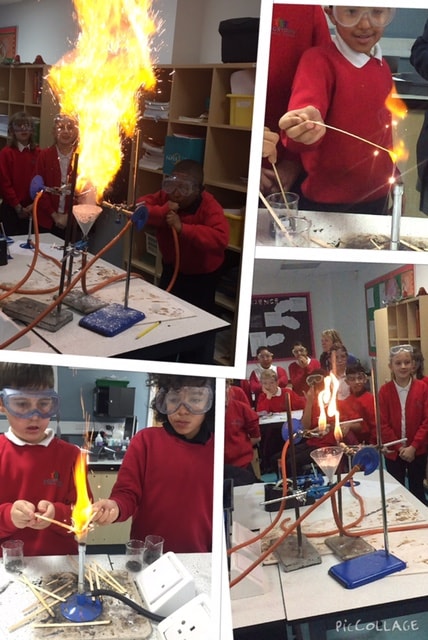
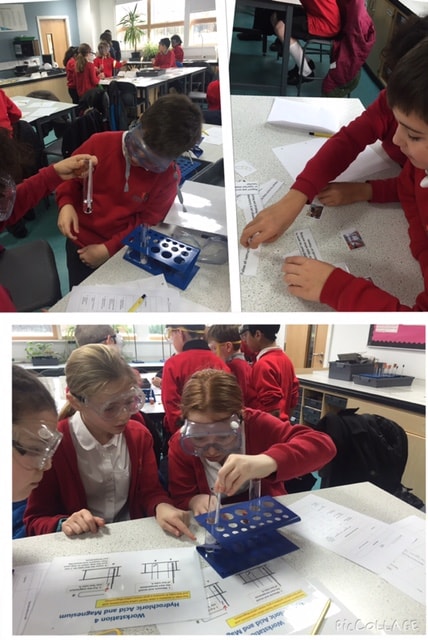
Here is some of our favourite ‘Wow’ science. Don’t worry… no Y5s were harmed during filming.
What happens when you heat custard powder?
What happens when you set hydrogen on fire?
Spectacular Science!
Today, we were fortunate enough to visit the science department of Allerton Grange High School.
We completed six experiments using their specialist equipment in the labs; we mixed acid with magnesium and even made our own sparklers!
We also saw some awe-inspiring demonstrations of different chemical reactions. In one of them, Zach had his hands set on fire!
Most importantly, all the children returned to school enthused about science and hungry to learn more. This is great because our current topic ‘What’s The Matter?‘ and our next topic ‘Life‘ are driven by this subject.
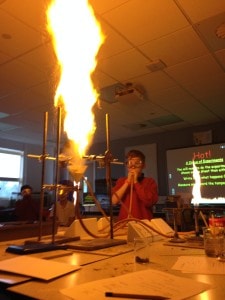
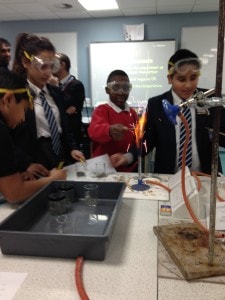
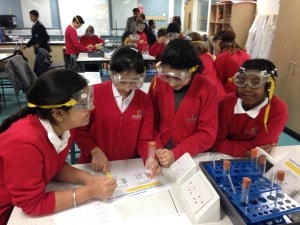
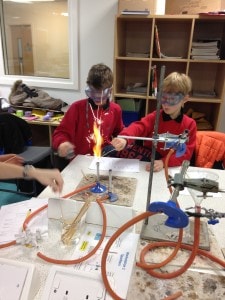
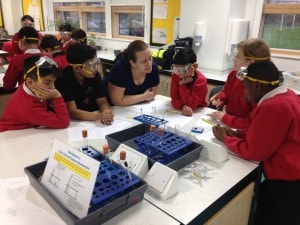
This week, by Arran and Bailey
Arran and Bailey spent some time reflecting on some of our learning this week.
Topic
In Year 6, we have started a new mini topic called ‘What’s The Matter’. This topic involves Chemistry. In our first lesson, we learnt about ‘filtration’ and how to separate mixtures and solutions.
Here is some technical vocabulary that we have learnt:
- ‘Mixture’: A mixture is a combination of a solid and a liquid which won’t dissolve.
- ‘Solute’: A solute is solid that dissolves in a solvent.
- ‘Solvent’: A solvent is the liquid used to dissolve a solute.
- ‘Solution’: A solution is the combination of a solid and a liquid that have dissolved.
English
In English we have received a mystery letter from Alexander Wolf. The first few lines of the letter read: ‘Everybody knows the story of The Three Little Pigs. Or at least they think they do. But I’ll let you in on a little secret. Nobody knows the real story because nobody has heard my side of the story.’
Based on this letter we are writing a news report.
What’s the matter?
Our mini topic for the first two weeks is What’s the matter? In this Science-driven mini topic we will be looking at rocks, soil and fossils. Today, we’ve been investigating the properties of rocks. We conducted an experiment to see which rocks were permeable and which rocks were impermeable.



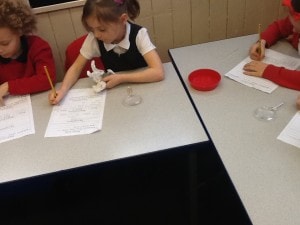
We used pipettes to add three drops of water onto a flat surface of a rock. We then observed what happened to the water. We were looking to see if it would soak into the rocks or just sit there. Why don’t you ask your child about the difference between permeable and impermeable rocks and how this experiment helped us to discover if rocks were permeable or not?
You could also explore whether other materials are permeable or impermeable – materials like raincoats, for example!
Welcome back!
2016 has hit the ground running in Y5. We welcomed each other back on Monday with a great circle time…
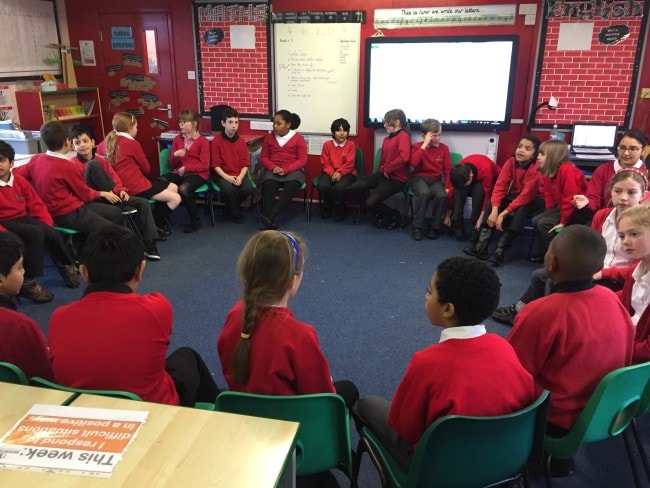
We’re working really hard on new English targets and are tackling measuring capacity in Maths.
Our new mini topic ‘What’s the Matter?’ started with lots of questions and hands on discovery as we explored which materials would conduct electricity.